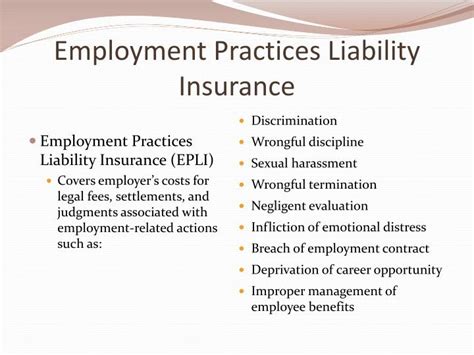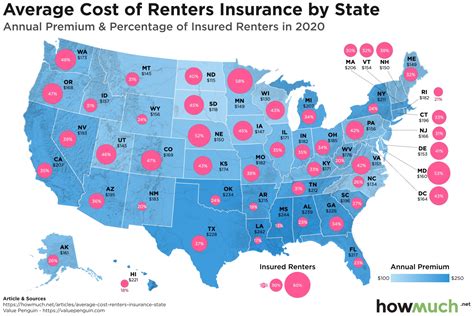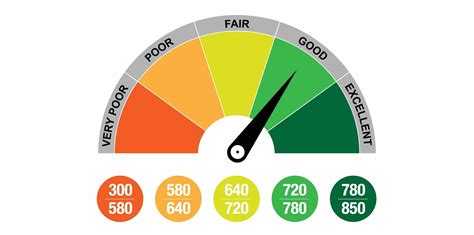
Meteoroka – Employment Practices Liability Insurance (EPLI) is a crucial form of insurance coverage that protects businesses from potential legal claims arising from employment-related issues. These issues encompass a wide range of workplace practices, including wrongful termination, discrimination, harassment, and retaliation. This article aims to explore the significance of EPLI, its coverage features, its relevance in different industries, and its impact on businesses and employees.
The Need for Employment Practices Liability Insurance
While businesses strive to create a positive work environment, the reality is that employment-related claims are on the rise. Employment practices liability claims can be financially devastating for businesses, especially for small and medium-sized enterprises (SMEs) that may not have the resources to handle expensive legal battles.
1. Rise of Employment-Related Claims
According to a study by Hiscox, U.S. businesses have a 10.5% chance of facing an employment practices charge, with the average cost of defending these claims exceeding $160,000. The most common types of claims include:
- Discrimination based on race, gender, age, religion, or disability
- Sexual harassment
- Wrongful termination
- Retaliation
- Violation of employment laws and regulations
2. Impact on Businesses
Employment practices claims can result in severe financial losses, tarnished reputation, and decreased employee morale. Even if the claims are eventually dismissed, the legal costs and the time spent in court can be substantial.
Coverage Features of EPLI
Employment Practices Liability Insurance provides a safety net for businesses by covering various aspects of legal claims related to employment practices. The coverage typically includes:
1. Wrongful Termination
Claims alleging that an employee was terminated unlawfully, often due to reasons such as discrimination or retaliation.
2. Discrimination
Claims that accuse the company of treating employees unfairly based on their race, gender, age, religion, disability, or other protected characteristics.
3. Sexual Harassment
Claims arising from unwelcome sexual advances, requests for sexual favors, or other verbal or physical conduct of a sexual nature in the workplace.
4. Retaliation
Claims where an employee alleges retaliation after filing a complaint or participating in an investigation against the employer.
5. Workplace Violation of Laws
Claims related to the violation of various employment laws and regulations, such as the Fair Labor Standards Act (FLSA) or the Americans with Disabilities Act (ADA).
The Relevance of EPLI across Industries
Employment practices liability is a concern across all industries, as workplace issues can emerge in any organization. Here are some examples of how EPLI is relevant in different sectors:
1. Technology Industry
In the technology sector, where talent competition is fierce, discrimination and wrongful termination claims may arise if hiring decisions are perceived to be biased or unfair.
2. Healthcare Industry
In healthcare settings, allegations of harassment or discrimination based on race, gender, or religion can have severe consequences for both the organization and the well-being of patients.
3. Financial Services Industry
In financial institutions, employees dealing with sensitive financial matters may raise claims of retaliation if they report unethical practices within the company.
4. Retail Industry
In the retail sector, issues such as wage and hour disputes, which fall under the FLSA violations, can lead to expensive legal battles and penalties.
The Impact of EPLI on Businesses and Employees
EPLI has both direct and indirect effects on businesses and employees alike. Understanding these impacts can help organizations make informed decisions about obtaining EPLI coverage.
1. Protection and Peace of Mind
For businesses, having EPLI coverage provides protection against financial losses and potential bankruptcy resulting from employment-related claims. It offers peace of mind to business owners and allows them to focus on core operations without worrying about costly litigation.
2. Mitigating Reputational Risks
Employment-related claims can severely damage a company’s reputation. EPLI coverage can assist in managing reputational risks by demonstrating a proactive approach to handling workplace issues and promoting a safe work environment.
3. Employee Trust and Retention
When employees know that their workplace is covered by EPLI, they may feel more secure and confident about reporting concerns without fear of retaliation. This, in turn, fosters trust and loyalty among employees and reduces turnover rates.
4. Improved HR Practices
Obtaining EPLI often prompts organizations to reassess and strengthen their human resources practices. This can lead to improved policies, training programs, and procedures to prevent employment-related issues from arising in the first place.
Case Studies: The Importance of EPLI
Let’s examine a couple of real-life case studies that highlight the significance of Employment Practices Liability Insurance:
1. XYZ Corporation
XYZ Corporation, a mid-sized manufacturing company, faced a wrongful termination lawsuit when an employee alleged that they were fired due to their age. The legal battle lasted over a year and incurred significant legal expenses. Fortunately, XYZ Corporation had EPLI coverage, which helped mitigate the financial burden of the lawsuit and eventually resulted in a favorable resolution for the company.
2. ABC Healthcare
ABC Healthcare, a reputable hospital chain, experienced a series of sexual harassment claims against a senior executive. The negative publicity impacted the company’s brand image and led to a decrease in patient admissions. With EPLI coverage, ABC Healthcare was able to manage the legal costs and address the claims promptly. The company also took proactive measures to enhance its workplace policies and foster a safe environment for employees and patients.
Conclusion
Employment Practices Liability Insurance is a vital safeguard for businesses facing the ever-increasing risks associated with employment-related claims. It offers financial protection, helps mitigate reputational risks, and promotes a positive work environment. Regardless of the industry, organizations can benefit from EPLI coverage, ensuring they have the means to address potential legal claims and focus on their core operations.
Q&A
Have questions about Employment Practices Liability Insurance? Check out the following commonly asked questions:
Q1: Is EPLI necessary for small businesses?
Yes, EPLI is equally essential for small businesses. In fact, smaller businesses may be more vulnerable to employment-related claims due to limited resources and potential gaps in their human resources practices.
Q2: Does EPLI cover claims from former employees?
Yes, EPLI typically covers claims from current and former employees, as long as the alleged incidents occurred during the policy period.
Q3: How can businesses reduce the likelihood of EPL claims?
Businesses can take proactive steps to minimize EPL claims by implementing fair and consistent HR policies, providing regular training on workplace conduct, and promptly addressing employee concerns or complaints.





